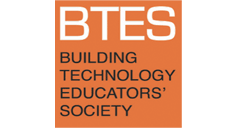Integrative Design and the Problem of Fragmented Knowledge
Abstract
During its 2017 NAAB accreditation, the School of Architecture at Clemson University received high marks for Integrative Design, having met this criterion “with distinction.” The report stated: “There was ample evidence… from the comprehensive design studios that students possessed the necessary abilities and skills to synthesize a broad range of contextual, design, and technical considerations into an integrated design solution…. The quality of the projects is high, which is in large part due to collaborative teamwork.” Undergirding the effective collaboration of the students, the Comprehensive Studio thrives on a careful schedule plus measured team-teaching from the faculty.
The Studio comprises 30-40 M.Arch students, working in pairs. The projects typically range from 30,000 to 60,000ft2,and feature complex programs. The site and building design phases fill the first half of the semester, with the remainder focusing on technical development.
Overseeing this is a versatile team of instructors possessing professional experience and diverse expertise – from history/theory, to zero-energy design, to structural systems. This addresses, in a critical way, the notion of integration. Too often, the design studio is set up to recognize alpha designers, under the tutelage of the sage instructor. This leads to fragmented knowledge. Our approach instead emphasizes distributed knowledge while embracing ambiguity when it arises. On the one hand, the instructors’ expertise is complementary, promoting robust, integrated design solutions. On the other hand, our critiques sometimes conflict, presenting a purposeful challenge and demanding that students carefully consider each position and chart a path forward. The projects are tested and refined by the process. This methodology has been honed over six years with decidedly positive outcomes and supportive student feedback.
This paper presents these methods and considers both the successes and challenges of directing integrative design studios in this manner. This analysis is supported with student samples and course feedback.
Keywords: pedagogy, integrative design, collaborative teaching
How to Cite:
Albright, D., Ersoy, U., Franco, D. & Heine, U., (2019) “Integrative Design and the Problem of Fragmented Knowledge”, Building Technology Educators’ Society 2019(1). doi: https://doi.org/10.7275/btes.454
Downloads:
Download PDF
409 Views
154 Downloads

